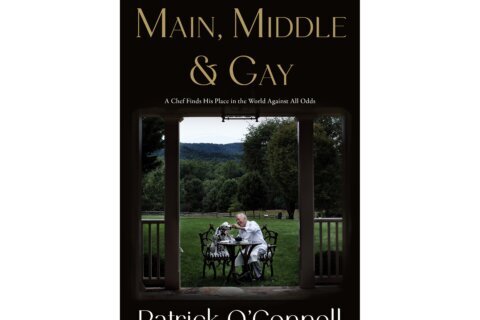WASHINGTON — If you’re having a hard time keeping track of all the recent Spider-Man reboots, you’re not alone. Spidey has become a tangled web of Hollywood property rights.
Long story short, Marvel Comics used to license its superheroes out to various studios (i.e. Spider-Man to Sony; The X-Men to Fox), but when Marvel launched its own studio, Marvel Studios, it was bummed that it couldn’t use Spidey in its Marvel Cinematic Universe (MCU).
So, ex-Sony head Amy Pascal struck a deal with Marvel Studios head Kevin Feige to share Spidey. Under the deal, Sony controls funding, but Marvel controls creative; Sony gets the box office of Spidey stand-alone films, while Marvel can use Spidey in its MCU Avengers movies.
For all this, interest has waned among film buffs, who know that each reboot dilutes Spidey’s place in movie history, while in-the-moment moviegoers relish any chance to see the web-slinger on screen. And so, after Sam Raimi’s “Spider-Man” (2002-07) and Marc Webb’s “The Amazing Spider-Man” (2012-14), we now get the latest reboot, “Spider-Man: Homecoming.”
It’s not so much an origin story as it is a continuation of “Civil War” (2016), where 15-year-old Peter Parker (Tom Holland) swung in to help the Avengers. Now, he has an “internship” with Stark Industries, while roaming the hallways with best bud Ned (Jacob Batalon) and crushing on Liz (Laura Harrier). He dreams of inviting her to homecoming, until his high-school life is interrupted by the sinister antics of a flying supervillain know as Vulture (Michael Keaton).
It’s great seeing Keaton back in the superhero genre for the first time since Tim Burton’s “Batman Returns” (1992), unless you count the Best Picture winner “Birdman” (2014), where he played a washed-up superhero star struggling on Broadway. His Birdman past fits nicely into his Vulture wings, while his up-to-no-good grin screams supervillain. If anything, you’ll wish we saw more of him and less of Spider-Man — just to build up the baddie’s credibility.
That’s not to say Holland isn’t a good Spidey. He is. Aside from Black Panther, Holland stole the show in “Civil War” with his youthful spirit, playful attitude and comedic quips. Tobey Maguire will always hold our original pop-culture memories (“With great power comes great responsibility”) and Andrew Garfield will have the more acclaimed acting career (“The Social Network,” “Hacksaw Ridge”), but Holland is a worthy successor to the Spider-Man mantle.
Here, his lovable naiveté is enhanced by the adult pushback from Marisa Tomei, whose Aunt May leaves Peter’s friends fawning; Robert Downey Jr., whose Tony Stark treats him like a kid with “training wheels;” and Jon Favreau, whose Happy Hogan spits meta references to his “Iron Man” directing success (“If it weren’t for Tony Stark, I don’t know where I’d be”).
Still, these adult figures only make brief appearances. The heavier lifting is done by Peter’s peers, cast with refreshing diversity. Batalon’s Ned is a believable nerd; Harrier’s Liz is an intelligent love interest; and Zendaya’s Michelle recalls Ally Sheedy in “The Breakfast Club.” When “Atlanta” star Donald Glover shows up as Aaron Davis, let the fan theories run wild.
At times, the young performers make “Homecoming” feel juvenile, like a “teen movie.” After all, Zendaya got her start as a backup dancer for Selena Gomez. For the most part, though, director Jon Watts keeps the tone light, much like his spoofs for The Onion News Network.
Thus, Watts’ action sequences are undeniably fun, from a Staten Island ferry splitting in half to high-wire heroics atop the Washington Monument. Local viewers will turn to each other and laugh: “Now we know why the monument is cracked and the elevators rarely work. It wasn’t a damn earthquake — it was Spidey saving the day!” Who knew D.C. and Marvel could mesh?
It’s not all action, though. Watts’ script — co-written with a committee of six — offers some nice subtle touches. After years of scripts ignoring the consequences of super-battles laying waste to human cities, Watts flips this trope to the villain’s advantage, as Keaton sifts through the rubble to smuggle alien weapons. But above all the script elements, Watts saves his best for last, as Act Two wraps with a brilliant plot twist that I guarantee no one will see coming.
As you leave the theater, you’ll have forgotten the early childish elements, which will be washed away by the clever twist and a laugh-out-loud line that launches the end credits. Be sure to stick around for two post-credits clips: the first serving as typical franchise-building fare; the second becoming my favorite yet, simply for poking fun at the very concept itself. In an era of dark, self-serious superheroes, Spidey will make you smile. That’s good enough.









